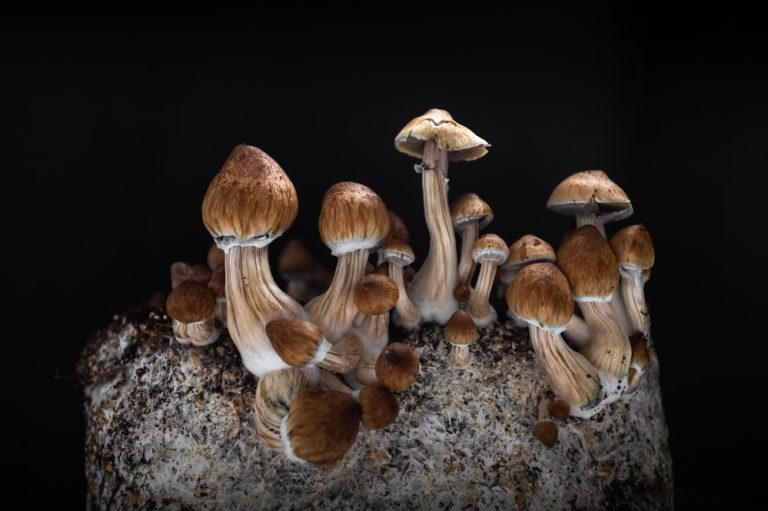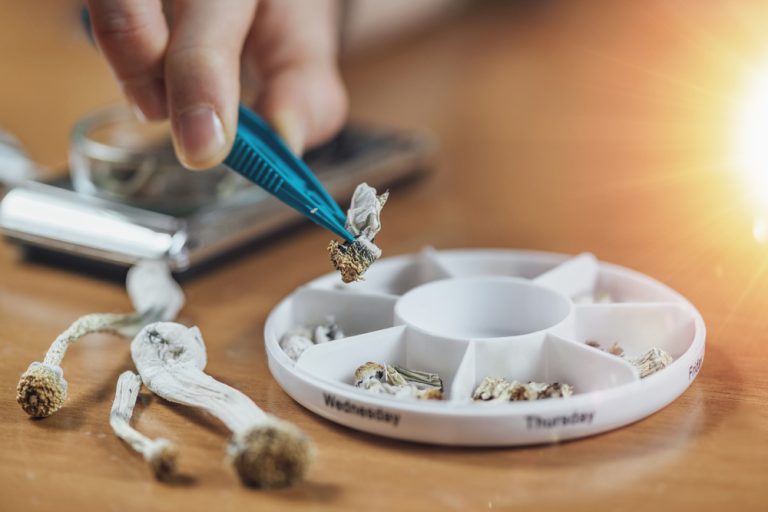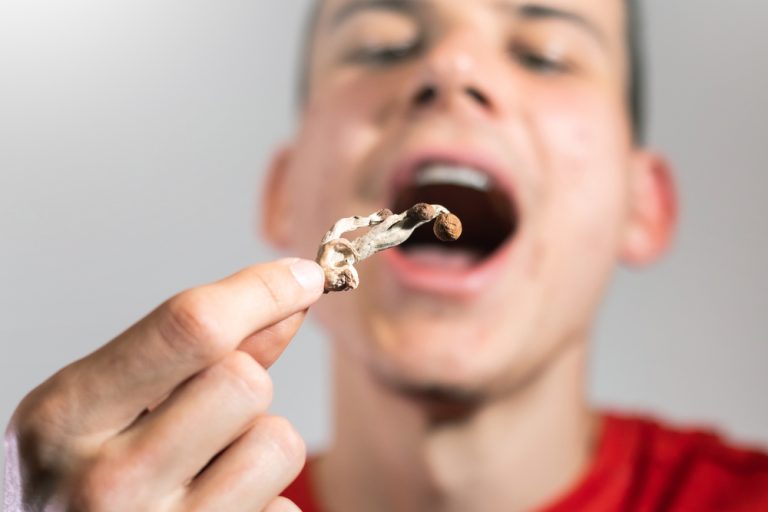
What Are Safe Steps for Beginning Psychedelic Therapy
While traditional therapies offer predictability, beginning psychedelic therapy can chart new paths for mental health treatment. You’ll need to navigate legal and clinical landscapes carefully.

Envision yourself traversing the intricate realm of mental health therapy, which is as diverse and intricate as a mosaic composed of many distinct fragments.
‘Microdosing Psilocybin: Real Stories From Therapy Users’ provides an immersive glimpse into the lives of those who have embraced microdosing psilocybin as a source of optimism.
Their accounts, based on personal experience, mirror the expanding corpus of clinical studies indicating possible advantages for mental well-being.
You will comprehend the efficacy of minuscule, sub-hallucinogenic quantities of this organic substance in alleviating the burdens of anxiety, sadness, and PTSD experienced by individuals.
This is an exploration of the successes and challenges experienced by actual individuals, providing a balanced viewpoint on this developing area.
As you peruse the pages, you will encounter a morally oriented investigation of the potential integration of microdosing within a wider therapeutic context.
You’ll discover therapy-goers’ transformative tales, each illustrating the profound impact microdosing psilocybin has had on their lives. People grappling with mental health issues have reported positive effects after taking psilocybin in small, sub-hallucinogenic doses.
Some individuals recount a marked reduction in symptoms of anxiety and depression, attributing their newfound equilibrium to the benefits of microdosing. Unlike full-blown psychedelic experiences, microdosing allows for the integration of insights without overwhelming the senses.
Healing centers and therapists increasingly acknowledge these real stories, suggesting that microdosing may offer a supplementary approach to conventional treatments. As you delve into these narratives, you’ll find a common thread of hope, hinting at the potential of psilocybin to transform mental health care.
As you transition from the stories behind microdosing psilocybin to understanding its application, it’s essential to grasp the meticulous approach users take when starting this therapy. Microdosing involves consuming sub-hallucinogenic amounts of psychedelics like psilocybin mushrooms in a controlled, often experimental manner. The goal is to enhance mental health without impacting daily functioning.
| Step | Description | Frequency |
| Assess | Evaluate mental health and intentions | Initially |
| Dose | Consume a microdose of psilocybin | As per protocol |
| Reflect | Monitor effects and mental shifts | Continuously |
Clinical trials are investigating the effects of this practice, with many participants reporting subtle yet meaningful improvements. Ethically, it’s crucial to approach the practice of microdosing with caution, considering its legality and current research status.
While you explore the world of microdosing psilocybin, it’s important to note that many users report significant improvements in their mental health conditions. Clinical trials have begun to shed light on the therapeutic outcomes observed from psilocybin use, particularly in treating mental health concerns such as major depressive disorder and post-traumatic stress disorder. The effects of microdosing, a practice that involves using psilocybin in sub-psychoactive doses, have been associated with reduced symptoms and an enhanced sense of well-being.
Although these insights are promising, they come from a limited yet growing body of research. The ethical approach to discussing microdosing psilocybin acknowledges both its potential and the need for rigorous scientific evaluation. As we consider these encouraging reports, let’s also delve into the challenges and controversies surrounding this practice.
Reflecting on the promising outcomes of psilocybin therapy, you must also navigate the complex challenges and controversies that accompany microdosing. In the United States, under federal law, psilocybin remains classified as a Schedule I drug in the Controlled Substances Act, making microdosing mushrooms remain illegal.
It’s crucial to weigh these factors ethically and clinically, ensuring claims about microdosing are evidence-based and responsibly communicated.
In light of these challenges, you’ll find that the future of microdosing psilocybin is closely tied to rigorous scientific validation and the personal testimonies of those who’ve experienced its effects.
As you explore the evolving practices, you’ll notice an increasing focus on how microdosing psychedelics, particularly a microdose of psilocybin, can impact mental health. This tiny amount, derived from magic mushrooms, is being studied for its potential to help people treat anxiety, which remains a leading cause of distress.
Research, including neuroimaging and clinical trials, is essential to ethically advance microdosing courses aimed at therapeutic outcomes. The goal is to responsibly harness the benefits of psilocybin to improve well-being, making sure that claims are backed by solid evidence.
You’ve seen the personal journeys and the potential healing psilocybin microdosing might offer. It’s a process that could enhance your mental health, sparking creativity and calm.
While you’ve heard about the therapeutic gains, remember the research is still evolving. There are challenges and ethical considerations to navigate.
As you ponder the future of microdosing, weigh the evidence carefully and consult healthcare professionals. It’s a promising path, but one that requires careful, informed steps.

While traditional therapies offer predictability, beginning psychedelic therapy can chart new paths for mental health treatment. You’ll need to navigate legal and clinical landscapes carefully.

While delving into the emerging realm of psychedelic treatment, it is worth contemplating the case of John, a man who claims to have had substantial

In a hypothetical scenario where your usual morning coffee is substituted with miniature mushrooms, you find yourself contemplating the growing interest in microdosing psilocybin. Have

Adaptogenic blend of magic mushrooms curated with health and vitality of your brain in mind.
Menu
Locations
© Mikrodose.is 2024. All Rights Reserved.
Mikrodose.is is not intended to provide diagnosis, treatment, or medical advice. Products, information, and other content provided on this Site, including information that may be provided on this Site directly or by linking to third-party websites are provided for informational purposes only. Please consult with a physician or other healthcare professional regarding any medical or health-related diagnosis or treatment options.